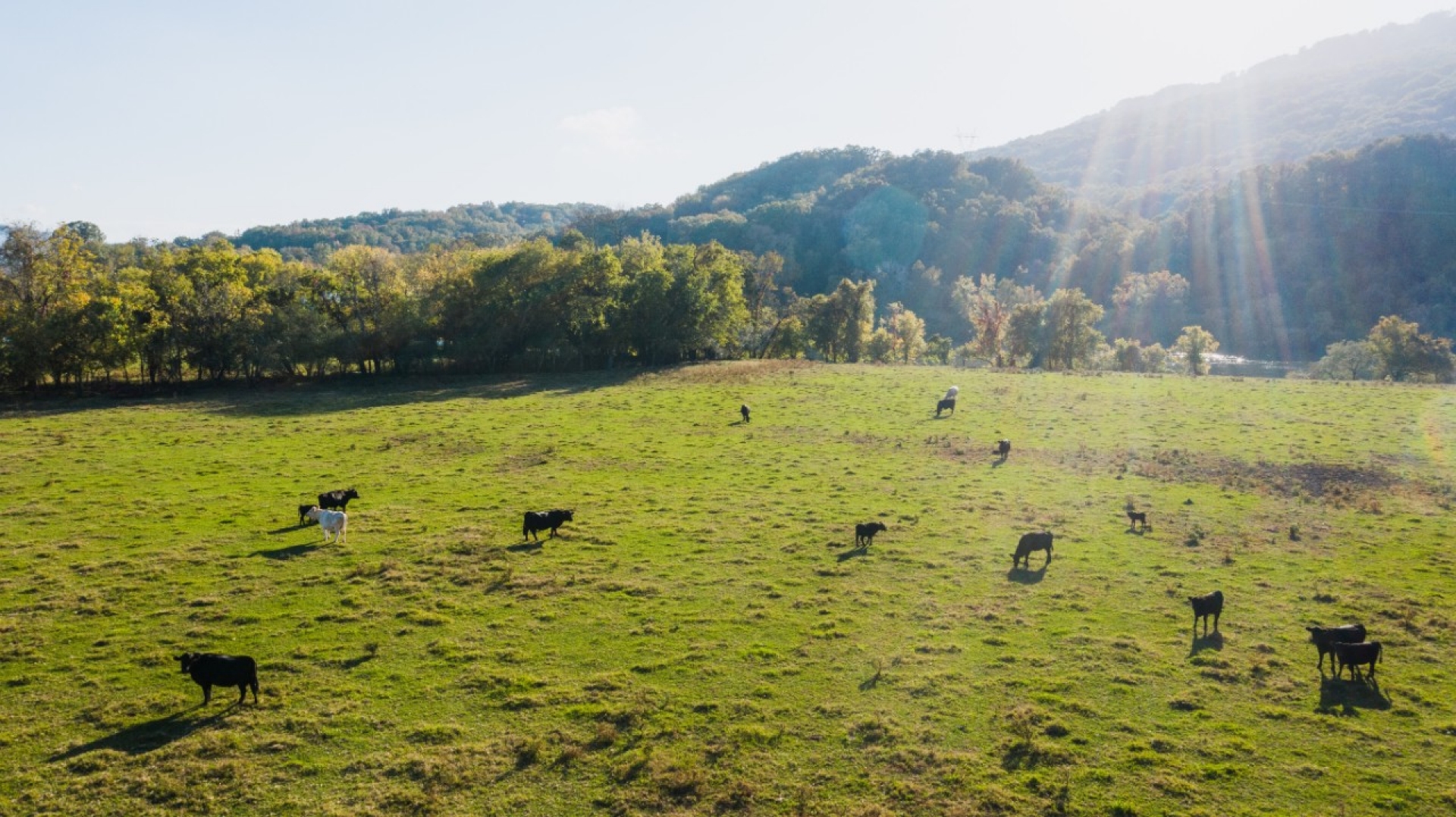Lick Skillet Farm’s Regenerative Agriculture

Lick Skillet Farm, a Century Farm in Jefferson County, has experienced environmental transformation thanks to four generations of farmers committed to environmental stewardship. Between 2012 and 2022, the cattle farm improved its profits while reducing inputs, changing from pasturing 200,000 pounds of livestock supplemented with 750 tons of hay to 330,000 pounds of livestock supplemented with only 255 tons of hay.
The farm has adopted many innovative practices, including integrated pest management, 100% no till, cover crops, compost (as a replacement for synthetic fertilizer), and solar and geothermal installations. Through a partnership with the Tennessee Department of Agriculture (TDA), the farm receiving funding from the Agricultural Resources Conservation Fund (ARCF) to install cross fencing and a livestock water pipeline.
These practices contribute to a complex system known as regenerative agriculture, and this approach to farming allows Lick Skillet Farm to protect air and water quality while restoring environmental health to the capacity and capabilities existing prior to 200 years of extractive agriculture. Regenerative agriculture has allowed Lick Skillet Farm to greatly reduce its carbon footprint, and in 2022, become what is believed to be the first U.S. farm to receive carbon credits generated by planting trees as part of an integrated livestock-agroforestry plan.
Lick Skillet Farm was awarded the 2023 Governor’s Environmental Stewardship Award in recognition for its commitment to regenerative agriculture.
Funding Sources
| TDA Agricultural Resources Conservation Fund (ARCF) | $9,700 |